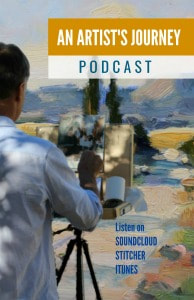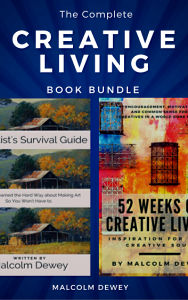|
Are you feeling stuck? Lacking creative inspiration? If so, then this article is for you. It is normal to hit a dry spell in your artistic life. There are ways to help yourself bounce back. Sometimes it can take longer. Other times you get your creative mojo back easier. In this article you will learn about eight great ways to get your creative drive back again. Let us get started.
Creativity is not random
Creative people often describe themselves as "insanely lucky." They're constantly surprised by their good fortune, and it feels like luck, because they don't understand how something could happen without effort. But that's wrong. Creative ideas aren't random; they come from a deep well of mental processes that allow us to see things differently, think about problems in new ways, and draw connections between seemingly unrelated concepts. The key to unlocking those processes lies in understanding what happens in our brains when we experience creative moments. When you're having one of those moments, you're likely thinking about a particular subject—a question, a challenge, a project—in a way that makes it easier to solve. You might even notice some patterns in the information around you, and make connections among different parts of your life. Those patterns are clues that help you unlock your brain's hidden potential for innovation. Eight Ways to Boost Your Natural Creativity Creative thinking is often associated with being artistic or having a vivid imagination. But there is much more to creativity than just coming up with ideas. In fact, creativity is a skill that anyone can learn. You don't need to be a genius to become creative. All you need is some basic understanding of how the human brain works and a willingness to put in the effort. Let us look at how to get started developing your creative skill: 1 Focus On What You Want To Achieve If you want to be creative, you must first know what you want to achieve. This doesn't mean that you have to write down every detail about your idea, but it does mean that you understand why you want to pursue this particular project. Once you've figured out your goal, you'll be able to make better decisions about where to spend your energy. 2 Don't Be Afraid Of Failure The biggest mistake most people make when trying to improve their creativity is to avoid failure altogether. When you're afraid of failing, you won't try anything new because you're too worried about making mistakes. And without even realizing it, you end up limiting your potential. Instead, embrace failure. Learn from each attempt and keep moving forward. As long as you don't give up, you never fail. 3 Your Artistic Observation. Our ability to create begins with noticing and appreciating the things around us. We start with mindful observation, or observing and appreciating the details in our surroundings. By improving your observation skills, it will allow you to see things others don't notice. You'll begin to notice subtle patterns and details that are invisible to most people. This will allow you to appreciate the beauty of nature, the elegance of art, and the wonder of science. Being observant means paying close enough attention to the things around you. When you find a subject that draws your attention, spend time observing it. Forget the logical description, "Its a tree." Instead observe it closely as if it has secrets to reveal. It does actually - those colors of the leaves. The colors of the shadows within the foliage. The sounds it makes as the breeze rustles the leaves. The bark on the tree? How many colors are there? The textures. How does the light show up colors one moment and then the next. The curve of the branch or trunk? the shadows it casts? Now you can create that tree in your art so much better. 4. Change your environment. A lot of people think that it takes a special place to inspire creativity. But a simple change of environment can trigger fresh, creative thoughts. Research suggests that small changes have big impacts. For example those who worked in settings like cafes or libraries were most likely to feel inspired. In fact, some of the most inspiring places included cafés, libraries, parks and museums. While working in a library or museum, participants reported feeling more focused and productive. However, the researchers noted that working in a cafe didn't necessarily mean you'd be inspired. Some participants felt that working in a cafe meant they weren't doing anything important. So what does this tell us? Well, it could be that we need to change our surroundings in order to spark our creativity. After all, it seems that many of us spend far too much time in our homes, and not enough time out in the real world. 5. Take a Creative Walk Studies reveal that simply taking a brisk walk around your neighborhood improves your ability to think creatively. Researchers had participants complete a short questionnaire about how often they engaged in physical activity, including running, biking, swimming, hiking, dancing, etc., as well as what type of activities they enjoyed most. Then, researchers asked those same individuals to take part in four different tasks designed to measure divergent thinking. These included visualizing alternate uses for common objects, coming up with alternative endings to stories, making connections between seemingly unrelated ideas, and generating random words. After completing each task, participants filled out another survey regarding their experiences. Those who reported being active three times per week scored better on the divergent thinking tests than those who did not engage in regular physical activity. The study authors concluded that engaging in moderate physical activity—walking 3 miles per day—improved divergent thinking. They noted that while previous studies have focused on cognitive benefits of aerobic exercise, there are many types of physical activity that could lead to similar improvements. For example, one study showed that playing basketball improved executive functioning and working memory. And research suggests that rock climbing can help sharpen attention skills. 6 Recharge your Natural Inquisitive Mind Creativity thrives on curiosity – it fires up our brains and ignites our creative thinking. Curiosity helps us learn about ourselves and others, and we are able to connect with people better because of it. However, once you start asking questions, you might find yourself doing less research and being more willing to accept what you already know. You could even become complacent. But there is good news. Asking questions stimulates your brain and ignites your creative juices. And you don't have to ask questions just for fun; you can use them to spark your curiosity and ignite your creative thinking. Here are some ways to recharge your curiosity: 1. Ask questions during conversations. 2. Ask questions while reading. 3. Ask questions while watching movies. 4. Ask questions while listening to music. 7 Practice Your Creativity Creative thinking is important, but so are the skills required to make things happen. Creativity is a skill, just like others such as speaking, reading, math, critical thinking and problem solving. And while some people naturally excel in one area over another, everyone can improve their skills in each domain. In fact, research suggests that practicing creativity helps build those skills. The ability to think creatively is a skill that many people lack, and there’s no better way to learn how to do it than to try making stuff. But even for the most creative and inventive people, about 10 percent is natural talent and 90% is labor. That’s because we tend to focus on our strengths and ignore what we don’t know well. That’s why it’s important to push past your first ideas. If you’re struggling to come up with something original, ask someone else to help you brainstorm. Or challenge yourself to create every day; if you find yourself stuck, take a break and start again later. Looking for a great way to practice your art, engage with a community of motivated artists and have fun learning new painting techniques? Try the Artist's Live Channel. 8 Daydream Distraction is everywhere, and we're constantly being bombarded with information from our devices. We are always plugged into something, whether it's work emails, social media notifications, or even TV shows. With so much going on around us, how do we find time to think creatively? One way to combat this problem is to take a break from technology and simply enjoy the silence. In one study, bored participants outperformed others on creativity tests.7 Another study found that boredom gave people time to daydream.8 And still another study showed that boredom led to increased levels of creativity. So next time you feel like you're running out of steam, try taking a step back and letting go of some of the distractions in your life. You might just discover a few new ideas along the way. Conclusion Creativity is not n accident. Inspiration finds you when you are working, said Picasso. He is right about that. Bring the fun back into making your art by trying out these techniques. Then jump back into your creative life and do your work. You are making the world a better place and even more important you are living your truth. Happy creating! Take better care of your creativity:
Pin for later
|
AuthorMalcolm Dewey: Artist. Country: South Africa Archives
June 2024
Categories
All
FREE
|
|

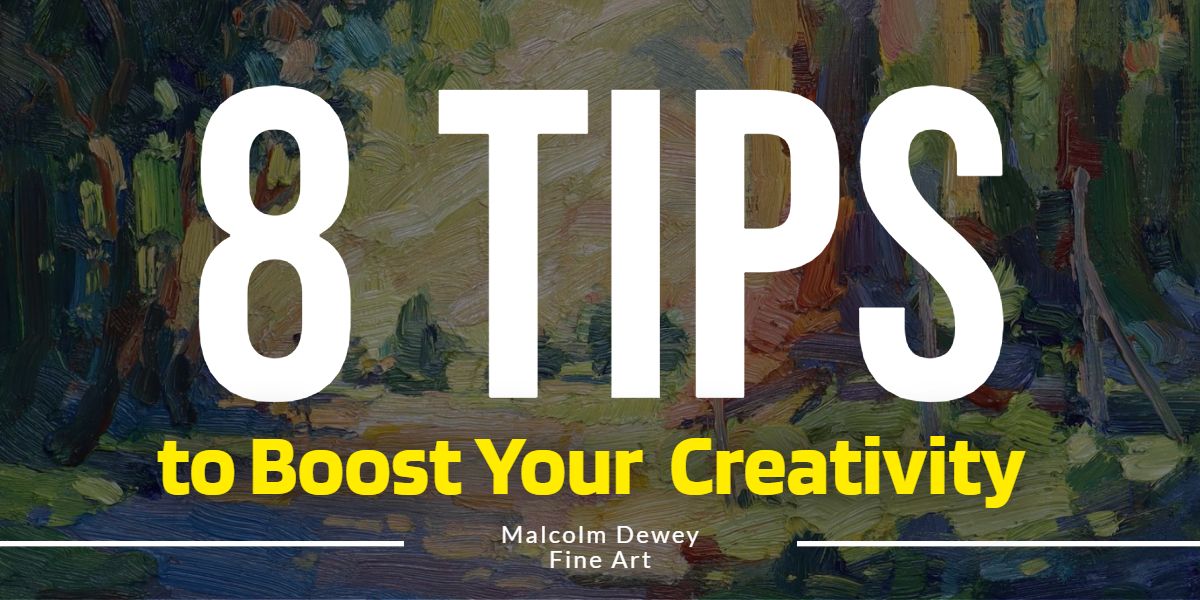
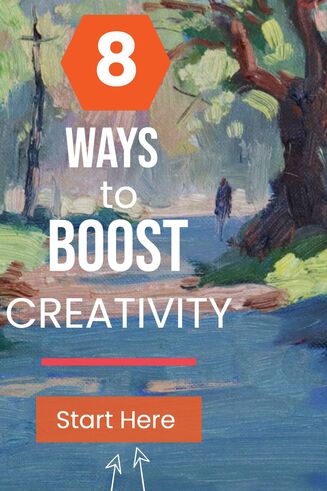

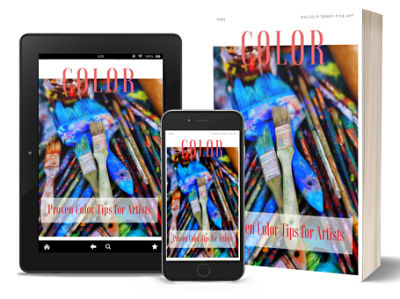
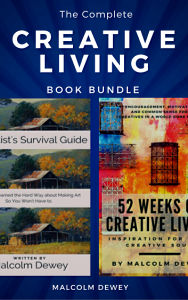
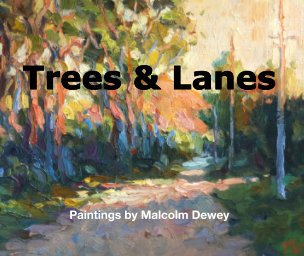





 RSS Feed
RSS Feed
